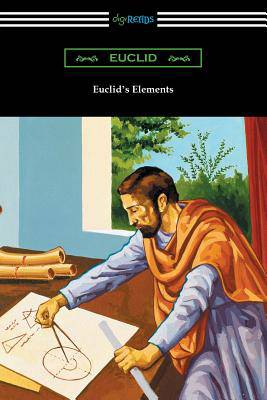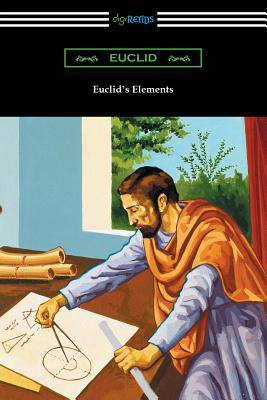
- Retrait gratuit dans votre magasin Club
- 7.000.000 titres dans notre catalogue
- Payer en toute sécurité
- Toujours un magasin près de chez vous
- Retrait gratuit dans votre magasin Club
- 7.000.0000 titres dans notre catalogue
- Payer en toute sécurité
- Toujours un magasin près de chez vous
Description
Euclid was a mathematician from the Greek city of Alexandria who lived during the 4th and 3rd century B.C. and is often referred to as the "father of geometry". Within his foundational treatise "Elements," Euclid presents the results of earlier mathematicians and includes many of his own theories in a systematic, concise book that utilized a brief set of axioms and meticulous proofs to solidify his deductions. In addition to its easily referenced geometry, "Elements" also includes number theory and other mathematical considerations. For centuries, this work was a primary textbook of mathematics, containing the only framework for geometry known by mathematicians until the development of "non-Euclidian" geometry in the late 19th century. The extent to which Euclid's "Elements" is of his own original authorship or borrowed from previous scholars is unknown, however despite this fact it was his collation of these basic mathematical principles for which most of the world would come to the study of geometry. Today, Euclid's "Elements" is acknowledged as one of the most influential mathematical texts in history. This volume includes all thirteen books of Euclid's "Elements", is printed on premium acid-free paper, and follows the translation of Thomas Heath.
Spécifications
Parties prenantes
- Auteur(s) :
- Traducteur(s):
- Editeur:
Contenu
- Nombre de pages :
- 404
- Langue:
- Anglais
Caractéristiques
- EAN:
- 9781420956474
- Date de parution :
- 17-12-17
- Format:
- Livre broché
- Format numérique:
- Trade paperback (VS)
- Dimensions :
- 152 mm x 229 mm
- Poids :
- 589 g

Les avis
Nous publions uniquement les avis qui respectent les conditions requises. Consultez nos conditions pour les avis.






